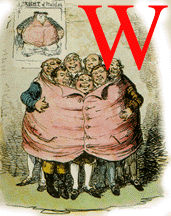 e have considered four major contexts of the nineteenth-century history of
addiction in Britain: the popular and intellectual history surrounding habit,
the politicization of personal habits, the rise of the medical profession, and
imperial attitudes. These contexts overlapped to help produce the identity of
the inebriate by the century's end, and shortly thereafter, the addict, when
all that had previously existed was the act of drinking alcohol or eating opium.
At the beginning of the century, there was no name for a person with a disease
that compelled them to consume illicit substances; at the end, such people could
be fit into various taxonomies. A useful shorthand for understanding this transition
is Michel Foucault's model of sexuality. Foucault addressed neither drugs nor
addiction in depth, but Eve Sedgwick has observed that the addict seems to be
a perfect candidate for his list of identities that emerged at the end of the
eighteenth century and intensified throughout the nineteenth: the hysterical
woman, the Malthusian couple, the masturbating child, and the perverse adult.
For example, Foucault's definition of sexuality seems apt when applied to the
emergence of addiction:
e have considered four major contexts of the nineteenth-century history of
addiction in Britain: the popular and intellectual history surrounding habit,
the politicization of personal habits, the rise of the medical profession, and
imperial attitudes. These contexts overlapped to help produce the identity of
the inebriate by the century's end, and shortly thereafter, the addict, when
all that had previously existed was the act of drinking alcohol or eating opium.
At the beginning of the century, there was no name for a person with a disease
that compelled them to consume illicit substances; at the end, such people could
be fit into various taxonomies. A useful shorthand for understanding this transition
is Michel Foucault's model of sexuality. Foucault addressed neither drugs nor
addiction in depth, but Eve Sedgwick has observed that the addict seems to be
a perfect candidate for his list of identities that emerged at the end of the
eighteenth century and intensified throughout the nineteenth: the hysterical
woman, the Malthusian couple, the masturbating child, and the perverse adult.
For example, Foucault's definition of sexuality seems apt when applied to the
emergence of addiction:
It is the name that can be given to a historical construct: not a furtive reality that is difficult to grasp, but a great surface network in which the stimulation of bodies, the intensification of pleasures, the incitement to discourse, the formation of special knowledges, the strengthening of controls and resistances, are linked to one another, in accordance with a few major strategies of knowledge and power.
Addiction offered a new mode of bodily stimulation, the intensification of pleasure in getting high, the incitement to discourse in the burgeoning phenomenon of the addict's anonymous confession, the formation of special branches of medicine and psychology to explain addicted behavior, and the strengthening of laws designed to curb drug use. If one considers that the deployment of sexuality "engenders a continual extension of areas of control," then Sedgwick's identification of an "epidemic of addiction attribution" seems to bear out addiction's categorization within Foucaultian sexuality. As Sedgwick explains, "[W]hat is startling is the rapidity with which it has now become a commonplace that, precisely, any substance, any behavior, even any affect may be pathologized as addictive." Sedgwick, however, is speaking of the 1980s in the United States. Whether or not the history of addiction does in fact fulfill a Foucaultian trajectory of the transformation of acts into identities and customs into behaviors requires historical analysis of the specific institutions, writings, ideas, and people who helped generate its meaning.
- Victorian Terms used to Describe Addiction
- Habits
- Temperance and Teetotalism
- The Medical "Discovery" of Addiction
Created 7 September 2002
Last modified 9 December 2022